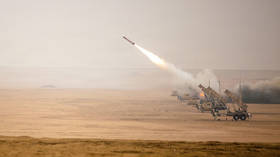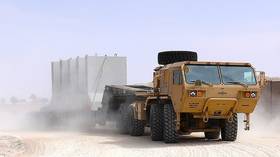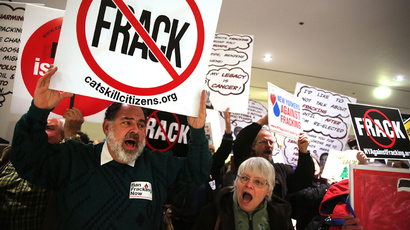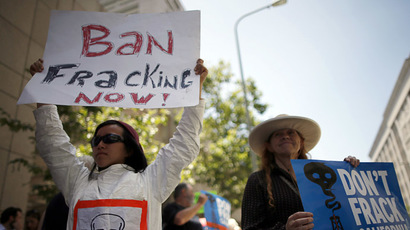‘I don’t want it for my kids’: Anti-fracking activist in PA battles gas giant
A Pennsylvania activist, who has been battling fracking companies in her town for five years, told RT how the court’s decision to bar her from extraction sites interfered with her private life – and why this does not matter for her relentless campaign.
“I don’t want to live with this and I don’t want it for future generations,” Vera Scroggins, an anti-fracking activist, told RT.
Scroggins, 63, a citizen journalist and political advocate, protests and documents the activities of gas companies engaged in fracking in Montrose, Pennsylvania, a borough of Susquehanna County in the northeastern corner of the state.
She is also known for leading bus tours of the Marcellus Shale gas field, where fracking is undertaken, and recording videos of drilling operations.
“I follow the tracks where fracking is going on, I show them sites from the road whatever the different phases – excavation, drilling, fracking, flaring and then, of course, the compressor stations, then the pipeline constructions all over the place,” Scroggins told RT. “Like a web, like a spider web. I show them that and then I take them to people who have been harmed.”
To unleash natural gas, hydraulic fracturing, or fracking, requires large volumes of water, sand and chemicals to be pumped underground.
The practice has also been associated with groundwater contamination, exacerbation of drought conditions, and a host of health concerns for residents and the local environment. Studies have indicated the process increases the risk of chemical spills, problems with waste disposal and methane contamination in the air and water.
Scroggins has been relentless in exposing the risks associated with the industry. Currently, her personal YouTube account has nearly 600 videos ranging from anti-fracking protests to county commissioners’ meetings where drillings were discussed.
“You can see the equipment here, this pipeline, the connection here, they call it a pig,” Scroggins said, showing the fracking site to RT’s Maria Portnaya. “The lights, the crane, you see that crane there?”

However, in October 2013 in an effort to keep Scroggins away from their operations, Cabot Oil and Gas Corporation — a Texas-based energy giant that conducts shale gas extraction – filed a lawsuit against the activist.
According to the lawsuit, her “offending actions” included giving a tour to anti-fracking celebrities Susan Sarandon and Yoko Ono in January 2013, as well as trespassing on Cabot’s property at least 11 times to either lead tours of fracking locations or to record videos, which then were uploaded to YouTube.
“They want to scare people and to keep them quiet, but it’s not going to work because we care enough about our stay and our planet, they will not going to keep quiet no matter what they do,” Barbara Vanhorn, an anti-fracking activist, who accompanied Scroggins on her tours, told RT.
In January 2014, the company won its lawsuit and ordered Scroggins to stay out of the 312.5 square miles (800 square kilometers) throughout Pennsylvania that have been owned or leased by Cabot. The decision is one of the most extreme measures won by a fracking firm in a battle against activists. The banned area included a county hospital, a drug store, a supermarket and a number of other locations she regularly visited before the conflict ensued.
“I couldn’t go to all the stores I could normally go to, I couldn’t go to the new hospital nearby, I couldn’t go to, let say, my vet for my dog, I couldn’t go to some of the restaurants when I was used to going to,” Scroggins told RT.

However, in March, the Pennsylvania’s court significantly loosened the restrictions for Scroggins to 100 feet (30 meters) from the entrance to any drilling location.
“We hope that protesters will understand and Cabot Oil & Gas will understand, too. There is the first amendment to this country protecting the rights of advocates even ones who have messages that the companies like Cabot may not want to hear,” said Scott Michelman, Vera Scroggins’ attorney.
Fracking operations, which allow extracting oil and gas not available through conventional methods, are spreading like wildfire across the US. In 2013, US production of crude jumped 15.3 percent, according to an International Energy Agency estimate, an increase unseen since 1951.
“I don’t want it for my children or anyone I know,” Scroggins told RT. “So I’ll continue to do this as long as I can.”
Meanwhile, scientists present at the annual meeting of Seismological Society of America (SSA) on May 1 said that ongoing hydraulic fracking operations will only exacerbate seismic activity, leading to heightened earthquakes in areas where wastewater is injected deep underground.














